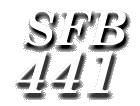
International Conference on Linguistic Evidence 2008
|
||
|
||
|
||
|
||
| ||
|
||
|
Conference programme
Wednesday 30 January 2008 |
|
| 18.00-20.00 | Registration in the foyer of the Brechtbau (Neuphilologikum) Wilhelmstrasse 50 |
Thursday 31 January 2008 |
|
| 08.00-09.00 |
|
| 9.00-9.20 | Welcome |
| 9.20-10.20 |
Guest speaker I: Greg Carlson (University of Rochester)
Structuring making reference |
| 10.20-10.55 | Aurelie Herbelot and Ann Copestake (University of Cambridge): Annotating genericity: How do humans decide? (A case study in ontology extraction) |
| 10.55-11.20 | Mid-morning break |
| 11.20-11.55 | Marta Recasens, M. Antònia Martí & Mariona Taulé (University of Barcelona): First-mention definites: More than exceptional cases |
| 11.55-12.30 |
Sabine Schulte im Walde1& Alissa Melinger2 (1: Institut für Maschinelle Sprachverarbeitung, Universität Stuttgart, 2: School of Psychology, University of Dundee, Scotland): An in-depth look into the co-occurrence distribution of semantic associates |
| 12.30-14.00 | Lunch break |
| 14.00-15.00 |
Guest speaker II: Lyn Frazier (University of Massachusetts) Explorations in ellipsis: The grammar and processing of silence |
| 15.00-15.35 | Andreas Konietzko (Universität Tübingen): Ellipsis, ATB-extraction and information structure: What aber imposes but und can't |
| 15.35-16.00 | Mid-afternoon break |
| 16.00-16.35 | Mingya Liu, Jan-Philipp Söhn (Universität Tübingen): Empirical perspectives on positive polarity items in German Slides |
| 16.35-17.10 | Tanja Kiziak (Universität Tübingen): New data on an old issue: Subject/object asymmetries in long extraction contexts Slides |
| 17.10-17.45 | Thomas Weskott & Gisbert Fanselow (Universität Potsdam): Different measures of linguistic acceptability -- not so different after all? |
| 18.00-20.00 | Poster reception with snacks and drinks at room 027 List of presenters |
Friday 1 February 2008 |
|
| 9.00-9.05 | Announcements |
| 9.05-10.05 |
Guest speaker III: Rada Mihalcea (University of North Texas) Linking documents to encyclopedic knowledge: Using Wikipedia as a source of linguistic evidence |
| 10.05-10.40 |
Ilona Steiner (Universität Tübingen): Partial agreement in German: A processing issue? Slides |
| 10.40-11.00 | Mid-morning break |
| 11.00-11.35 | Tim Züwerink (Universität Bonn/Universität zu Köln): Conjoint analysis in linguistics - multi-factorial analysis of Slavonic noun phrases |
| 11.35-12.10 | Sabine Zerbian(University of the Witwatersrand, Johannesburg): High tone alignment in a Southern Bantu language |
| 12.10-12.45 | James Myers (National Chung Cheng University): Automated collection and analysis of phonological data Slides |
| 12.45-14.30 |
Poster lunch with buffet at room 027 List of presenters |
| 14.30-15.05 |
Frederick J. Newmeyer (University of Washington, University of British Columbia, and Simon Fraser University): Semantic evidence and syntactic theory |
| 15.05-15.40 | Philip Rausch, Frank Burchert & Ria de Bleser (Universität Potsdam): Agrammatic comprehension of (non-)canonical structures in CP and DP: Data-mining the nominal syntax domain in neurolinguistics |
| 15.40-16.15 | Christina Manouilidou1,2, Roberto G. de Almeida1, V.P. Nair2,3 & George Schwartz2,3 (1: Concordia University, 2: Douglas Mental Health University Institute, 3: McGill University): Verb thematic roles and thematic hierarchy: Evidence from the performance of Alzheimer's patients |
| 16.15-16.40 | Mid-afternoon break |
| 16.40-17.15 | Markus Bader, Tanja Schmid & Jana Häussler(Universität Konstanz) : Optionality in verb-cluster formation Slides |
| 17.15-17.50 | Oliver Bott and Janina Radó (Universität Tübingen): How to provide exactly one interpretation for every sentence, or what eye movements reveal about quantifier scope Slides |
| 17.50-18.25 | Britta Stolterfoht, Helga Gese & Claudia Maienborn (Universität Tübingen) : An empirical perspective on linguistic classification: Unaccusatives meet the adjectival passive Slides |
| From 19.00 | Dinner in the Knights Hall of the Castle. |
Saturday 2 February 2008 |
|
|
9.00-9.05 |
Announcements |
| 9.05-10.05 |
Guest speaker IV: Hubert Haider (Universität Salzburg)
The thin line between facts & fiction - reflections on the prescientific state of the field Slides |
| 10.05-10.40 | Molly Diesing1, Dušica Filipović Djurdjević2, Draga Zec1 (1: Cornell University, 2: University of Novi Sad): Clitic placement in Serbian: Corpus and experimental evidence |
| 10.40-11.00 | Mid-morning break |
| 11.00-11.35 |
Katrin Axel & Angelika Wöllstein (Universität Tübingen):
German verb-first conditionals as unintegrated clauses A case study in converging synchronic and diachronic evidence |
| 11.35-12.10 | Thomas Pilz & Wolfram Luther (Universität Duisburg-Essen): Automated support for evidence retrieval in documents with nonstandard orthography |
| 12.10-12.55 |
Sam Featherston (Universität Tübingen):
A standard scale of well-formedness: Why linguistics needs boiling and freezing points Slides |
| 12.55-13.00 | Closing remarks |
| 13.00 | Close |
Page created by Stephan Kepser
Maintained by Sam Featherston
Last modified: 5.12.2007